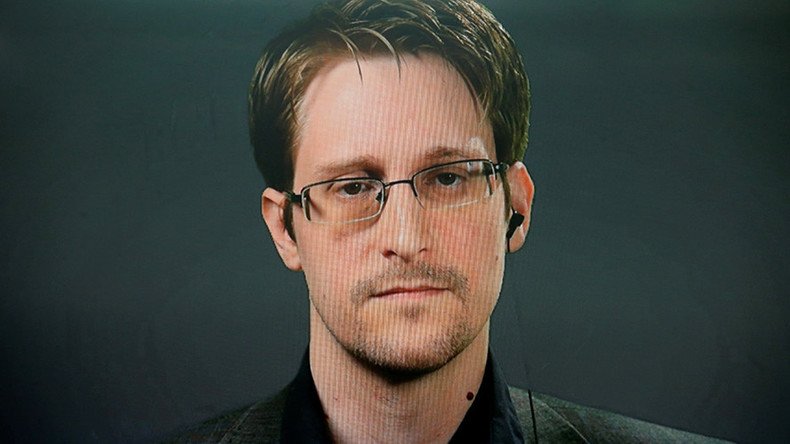‘US seeks to use Snowden example to discourage whistleblowers’ – Amnesty Intl

Charges against Edward Snowden are very much politically motivated; the US authorities want to make an example out of the ex-NSA contractor and prevent him from having a fair trial, Tanya O’Carroll of Amnesty International told RT.
Three major human-rights groups launched a public campaign in order to persuade US President Barack Obama to pardon whistleblower Edward Snowden.
Earlier, Snowden said he does not regret the decisions he made.
US lawmakers refuse, however, to pardon Snowden. White House spokesman Josh Earnest said Monday that the Obama administration believes that the ex-CIA contractor should return to the US to face charges.
President Obama's final act?: Human rights groups launch campaign seeking pardon for #Snowdenhttps://t.co/audjZ5V7hm
— RT (@RT_com) 15 сентября 2016 г.
RT: What exactly does Amnesty hope to achieve with this campaign?
Tanya O’Carroll: The clue is in the name – we’re asking President Obama to grant a pardon for Edward Snowden, based on the fact that we consider that the disclosures that were made have been so undeniably important for human rights, not just in the US, but around the world, and that is well within his power as President of the US, to grant him a pardon, and he can do that before he leaves office on January 20 next year.
RT: Those against a presidential pardon say it would set a dangerous precedent. Wouldn’t people start thinking they can leak anything, no matter how sensitive to national security?
TO’C: Yes, and it is clear that the US authorities very much want to make an example out of Snowden. Right from the start, the espionage charges that have been put over his head – which he is potentially facing up to 40 years in jail for – are very politically motivated. They prevent him from having a fair trial in the US with the public interest event. It is very clear that they want to make an example out of Snowden in order to discourage future acts of whistleblowing.
That is why we see, as Amnesty International, this case to be so important. This is also about defending the right to dissent. Snowden witnessed human rights violations on a massive scale. We’ve never seen anything like it – the level of mass surveillance the US has been engaging in along with other countries. We believe that it is also about protecting the rights of whistleblowers here and the right to dissent.
RT: How should the US deal with the fall-out from Snowden, rather than by hunting him?
TO’C: Amnesty for three years now has been calling on the US government along with other governments, too: the UK, Australia, Canada and New Zealand, was also part of ‘The Five Eyes’ intelligence sharing arrangement that was revealed by Snowden back in 2013. We believe that all of those governments need to do a lot to rein in what is clearly illegal – surveillance powers that have gone far beyond the limits of the laws in those countries.
‘American people deserve better’: #Snowden refutes House report through Twitter outburst https://t.co/0m4oj7kShg
— RT (@RT_com) 16 сентября 2016 г.
Since Snowden, we’ve seen in the US that a Federal Court ruled aspects of the collection program on US citizens illegal. There have been laws changed in the US with the introduction of the Freedom Act last year, and we’ve also seen those laws introduced in the UK. There have been some steps that clearly are reform efforts, as a result vindicating his actions in the public interest. But we don’t think they have gone far enough, and rather than spending their time hunting and vilifying Snowden, they should really be working hard to patch up the violations in the US.
RT: How much impact have Snowden’s revelations had on the American psyche?
TO’C: The reform I mentioned was the first time in 40 years that has actually been a clear legal change around what the US government can do on surveillance and the intelligence agencies. And that is a very big step forward. It is abundantly clear at this point that people did not know just how far the US government’s spying programs had gone, or even that these kinds of capabilities existed. We learned from Snowden that the US government is able to record every single call made in certain countries.
This is a level of technical capability that most people around the world, including in the US, never knew about. The US citizens certainly haven’t consented to that. It is really sparking important public debate that goes much further than just the US. I think this is going to be something that defines the coming years, and powers that are being introduced in other countries too, and resetting the debate around why it is important to have a right to privacy and why we don’t want any government to have the level of intrusive surveillance powers that the US government clearly does have.
The statements, views and opinions expressed in this column are solely those of the author and do not necessarily represent those of RT.












